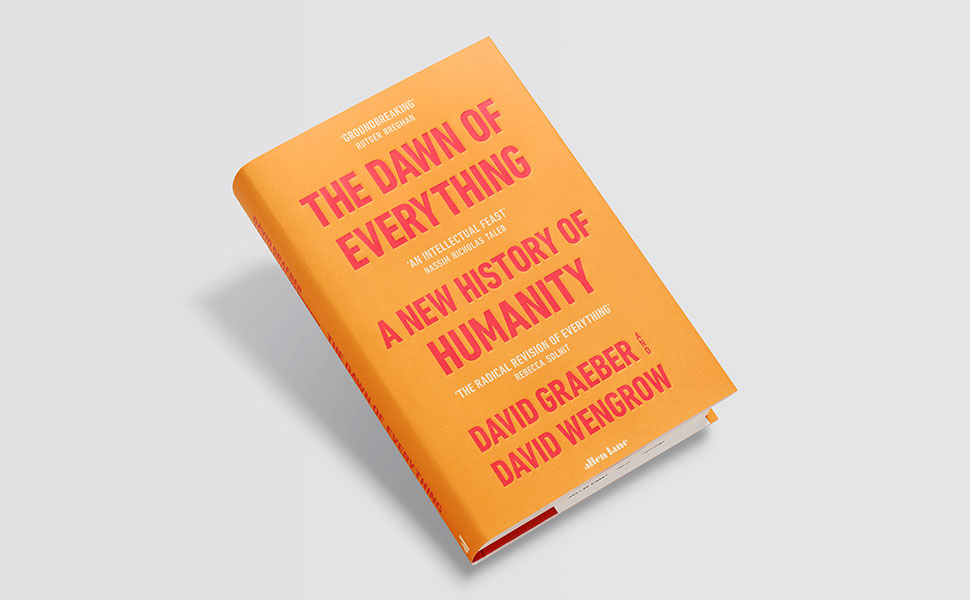
David Graeber never fails to radically reshape my view of the world with his research-informed writing and investigations into things many of us have taken for granted so long we don’t question them.
In Graeber’s last book (co-written with David Wengrow) before his untimely death, The Dawn of Everything: A New History of Humanity (2021), the two authors challenge the common view of human history as proceeding from small, so-called egalitarian hunter-gatherer bands to larger groups living in cities and relying on agriculture but having to put up with hierarchy and loss of freedom as the price of civilization. The evidence doesn’t stack up, they say, and show a range of examples from archaeology and anthropology showing that humans in the past deliberately chose ways of life with likely much more freedom than we have today, and that bigger populations do not necessitate the kind of controls we have come to expect to supposedly enforce order/avert chaos.
Bringing indigenous perspectives from Native Americans into the conversation with Enlightenment philosophers, Graeber and Wengrow challenge common ideas about indigenous cultures and their complexity of political thought:
One gets the sense that indigenous life was, to put it very crudely, just a lot more interesting than life in a ‘Western’ town or city, especially insofar as the latter involved long hours of monotonous, repetitive, conceptually empty activity. The fact that we find it hard to imagine how such an alternative life could be endlessly engaging and interesting is perhaps more a reflection on the limits of our imagination than on the life itself. (pg 21)
The book is packed with evidence we didn’t learn in school about alternative ways that societies around the globe organized themselves, and it suggests that the way we see the past is heavily skewed toward a narrative that makes the current nation-state seem inevitable and inescapable. The book is a good counterpoint to Yuval Noah Harari’s Sapiens: A Brief History of Humankind (2015) and more hopeful that the past could help us with useful models for other ways to live and be in the world.